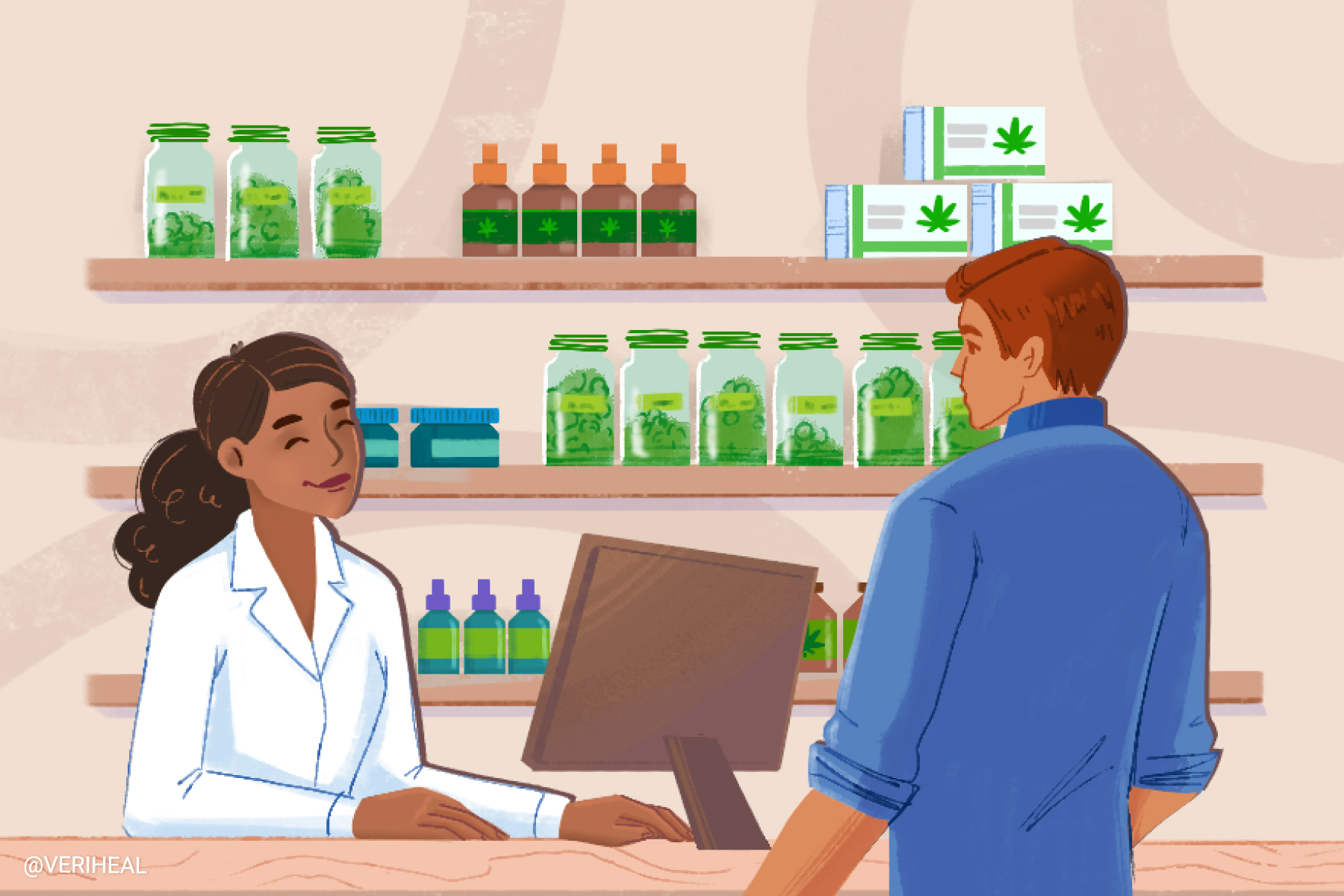Recreational cannabis is finally getting its moment, with New Jersey and Connecticut being the most recent states to announce the opening of recreational cannabis dispensaries this year. Now that medical cannabis is becoming more easily accessible and leading to the inevitable legalization of recreational products, some in the industry have expressed concerns that recreational use will overshadow the benefits of medical cannabis.
In order to get a better understanding of how recreational cannabis legalization may impact the outlook of medical cannabis, the American Journal of Managed Care (AJMC) compiled data from various studies. According to the researchers, “With recreational marijuana dispensaries becoming more common across the country, the benefits of medical marijuana could be neutralized”—but what does that mean exactly?
The AJMC argues that “with 37 states already legalizing medical marijuana, including the aforementioned 18, it stands to reason that the way that medical marijuana is prescribed and dispensed will change.” The concern lies in how to prevent the medical benefits from becoming less effective if medical consumers were to consume recreationally too.
Rec Creates Problems for Med
According to Dr. Jordan Tishler, president and CEO of Inhale MD and founder of the Association of Cannabinoid Specialists, “The industry wants to treat everyone as a recreational user and would like to marginalize physician care and oversight. This is all in an attempt to sell the most cannabis they can.” Tishler goes on to explain that “the result of their approach is larger sales, escalating tolerance, and eventually the likely development of cannabis use disorder.”
He adds that medical cannabis can be an effective means of treatment but that recreational cannabis leads to “so much tolerance that medical marijuana is no longer effective,” which is happening more often as recreational legalization continues to spread. While taking breaks from cannabis can reset one’s tolerance, medical consumers may not necessarily be able to take breaks in accordance with using the plant for treatment—hence the problem.
Why You Should Get Your Medical Marijuana Card
Veriheal has satisfied millions of patients nationwide by giving them access to these benefits
- Larger purchase limits
- Peace of mind
- Enhanced legal protection
- Access to higher potency strains
- Save up to 25% on cannabis purchases
- Skip the line at the dispensary
Another problem that seems to be on the rise with recreational legalization is the fact that some dispensaries are giving out medical advice. Tishler told AJMC that it really upsets him when he meets a patient “who was cannabis naïve 6 to 12 months ago but now, via recreational self-medicating, has gotten themselves behind the eight ball [at a disadvantage].”
AJMC believes that recreational cannabis is proving to be a “new roadblock in the effort to make medical marijuana a legitimate treatment for patients of all ages,” which makes sense when one considers the challenges that come with patients consuming medically and recreationally. AJMC adds that “finding a way for both kinds of dispensaries to work together and coexist may be vital to ensuring effective medical treatment.”
Here are the three main ways that recreational legalization has impacted the current state of medical cannabis:
- Medical cannabis requires a recommendation/prescription and/or medical marijuana card while self-medicating with recreational cannabis and the aid of unlicensed dispensary medicinal advice is available to anyone. Medical cannabis is, however, generally cheaper and less taxed.
- Physicians are now concerned about whether dispensaries that also sell recreational products will actually honor a prescription as it is written without pushing products to boost their sales margins.
- Industry professionals have changed their outlook from supportive to reserved due to concerns over the impact on medical consumers, who may choose to self-medicate instead of establishing a treatment plan with their physician.
Keeping Cannabis Medical
So—can med and rec coexist? To deal with the impact of recreational legalization, Tishler suggests setting up dispensaries to operate more like pharmacies. For example, recreational dispensaries in Connecticut will have licensed, trained pharmacists as part of meeting “very high quality standards,” explains Dr. Mitchell Prywes, the medical director at the Center for Pain Rehabilitation. “This step is one way in which states can make sure that a focus on the health and safety of their consumers is a top priority,” he stated. “However, this requirement isn’t found everywhere.”
When it comes to medicinal cannabis, it is important that consumers begin their journey with, as Dr. Prywes puts it, “a true doctor-patient relationship.” He goes on to explain that “having a doctor-patient relationship means you’ve thoroughly evaluated the patient, you understand what they’ve had, what they haven’t had, what their experience has been…It’s not a rubber stamp.” Medical patients will not have this kind of insight available when self-medicating or relying on off-the-cuff advice from budtenders.
Finally, medical cannabis needs to become less stigmatized in the medical community. Many physicians are still hesitant to discuss cannabis as a treatment option, which is what steers many toward self-medicating. Dr. Tishler explains that “front-line clinicians need to start suggesting cannabis to their patients proactively instead of reaching for more dangerous [such as opioids] or less effective alternatives [such as gabapentinoids].”
Author, Share & Comments
















